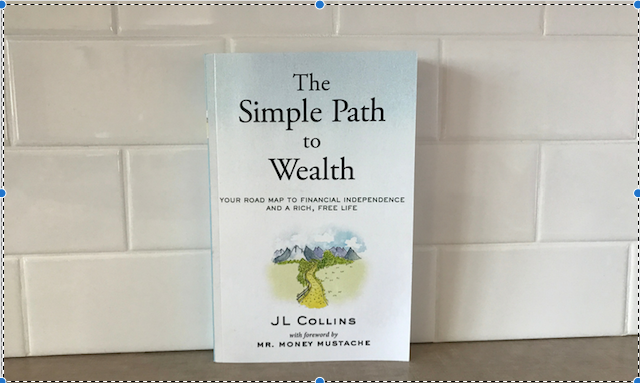Top 10 Books Every Beginner Investor Should Read
Taking part in investing can leave you wondering in a world of unclear terms, sudden changes, and lots of voices. Things like buying and selling can seem scary and unappealing to someone just learning about investing. Nevertheless, learning to be self-assured and comprehend subjects well is greatly helped by reading. Deep insights, context from history, and proven strategies are hard to find in online posts and news articles like they are in books. Having the correct financial books can help you set clear goals, understand what can go wrong, and plan strategies for your future. All these books have been selected because they share key knowledge that beginner investors can use at any time.
The Intelligent Investor by Benjamin Graham
Benjamin Graham’s “The Intelligent Investor” is known by many as the most important book on investing, and it has shown investors the way since first appearing in print. One main point of this book is value investing, which helps you look for companies that trade at a lower price than they should, avoiding the noise of the latest trends. Protecting from major losses is important, according to Graham, and you should do this by looking at the “margin of safety.” It distinguishes itself from a new investor by going into great detail on analyzing businesses, making intelligent choices, and resisting the urge to make decisions based on emotions. Although a number of things are technical, the basic points shared remain useful for today’s markets.

Rich Dad Poor Dad by Robert T. Kiyosaki
“Rich Dad Poor Dad” goes beyond giving advice and challenges the way people usually think about money. Robert Kiyosaki argues that his friend’s father’s methods were opposite to those of his biological father, who took a more traditional view. It explains that if you want to grow your wealth over time, buying reliable investments like stocks or real estate is extremely important. The book helps new investors understand why shifting their thinking toward learning more about finances is important. The way it tells stories makes understanding complex things easier, motivating people to manage their money.
The Little Book of Common Sense Investing by John C. Bogle
John Bogle introduced index funds, which changed investing by making it easier and more affordable for people to invest in the stock market. The book clearly explains why following a passive investing strategy matters more than actively trading in search of profits. The book also explains to new investors why it is often easier to succeed when they keep things simple in investing. The basic idea presented by Bogle is that a simple strategy of investing in a mix of index funds over the long term helps limit costs and risks and allows for better returns. It is a good starting place for anyone looking for a simple investment plan.
The Psychology of Money by Morgan Housel
There is usually an emotional side to money decisions. The book, written by Morgan Housel, explains how our actions, feelings, and biases affect our financial results. Inside these stories, individuals make choices that show the importance of their relationship with money. Like learning the numbers and strategies, understanding these psychological factors is very important for a new investor. From this book, you will learn that patience, humility, and decision-making based on your values are better than doing things because everyone else is doing them.
A Random Walk Down Wall Street by Burton Malkiel
Burton Malkiel’s book covers a wide range of investment vehicles and methods, so it is ideal for anyone just starting to invest. The author examines several types of investments like stocks, bonds, and mutual funds and explains the efficient market hypothesis, which claims that stock prices already include all known information. It proves that it is not practical to routinely do better in the stock market than an index. Malkiel suggests building low-cost, diversified portfolios, explaining both the idea and how to use it. The way he presents his ideas lets even newbies to philosophy understand this topic.
The Millionaire Next Door by Thomas J. Stanley and William D. Danko
The book shows how most millionaires live simple lives, contrary to what most people assume. According to Stanley and Danko, most millionaires get wealthy by avoiding excessive spending, saving a lot, and investing their money over a long period. This book is important for those just when it comes to investing since it stresses that wealth builds over time through organized actions rather than through overnight gains. It also points out that having financial discipline comes first before deciding to invest money.
The Simple Path to Wealth by JL Collins
The original version of “The Simple Path to Wealth” was a series of letters from JL Collins to his daughter explaining how to achieve financial security using investments. The book is strongest because of its simplicity; it focuses on using inexpensive index funds to gradually build your wealth. Collins simplifies tax benefits, uncertain markets, and methods for withdrawing money into language normal people would understand. For a beginner, this book explains the actions to take and also the reasons behind them, which makes finance less intimidating.

I Will Teach You to Be Rich by Ramit Sethi
The book by Ramit Sethi provides personal finance guidance in a contemporary way by also considering behavioral psychology. It covers many financial topics but also includes methods that beginning investors can follow. He guides readers to use automation so they gradually build up their wealth and skip the mistakes people make by procrastinating or spending impulsively. The straightforward and relevant approach in his writing makes it excellent for people looking for a realistic strategy.
The Bogleheads’ Guide to Investing by Taylor Larimore, Mel Lindauer, and Michael LeBoeuf
In following John Bogle’s principles, “The Bogleheads’ Guide to Investing” introduces readers to smart investing from the community angle. A variety of topics are looked at by the authors, such as how assets should be saved, effectively paying taxes, preparing for retirement, and fee avoidance. This guide provides well-structured advice that allows a new investor to design a strong long-term plan. What makes the book strong is its focus on being simple and patient and choosing inexpensive investment approaches.
Richer, Wiser, Happier by William Green
Green’s method steers away from just numbers and looks at the advice of big investors and their reasons for success. The book explores the ideas, routines, and views they had about risk and patience. It gives first-time investors lessons on adopting an approach that leads to lasting results. Studying how others have dealt with investing gives you more confidence and resilience, which aid in managing the industry’s unpredictable behavior.
Choosing the Right Books for Your Journey
Still, these ten books might not work for every beginner investor’s requirements. Think about your dreams, what you already know about money, and how you like to learn as you make your decisions. The subject of mindset shows up in some books, but others highlight different strategies, and some mix the topics. The first step is to figure out what you wish to strengthen, such as the logic of markets, your attitude toward money, or the tools you should use. Start with a few books that you prefer over many, and this will prevent you from feeling overloaded and help you get tangible results.
From Reading to Real-Life Investing
If you don’t trade, you won’t see your investments grow. Converting ideas into daily practices helps you develop. After reading a book, make sure to set easy-to-reach finance objectives. You could try setting up a brokerage account, setting up your savings to be automatically invested, or practicing through virtual trading platforms for no cost. As you put your studies into action, you get more confident and remember the lessons for a longer time. A link between theory and practice is crucial for a beginner investor who aims to be successful for years.
Common Issues That Reading Can Help You Prevent
Many people starting investing often make decisions based on their mood, trade on a whim, or try to catch the newest trends. Reading such literature highlights the usual ways people lose money. Many writers also give examples of missteps that resulted in losing both money and time. Use the knowledge of others to prevent making expensive mistakes and continue with a steady, focused strategy. Having this protective knowledge is one of the best advantages of reading investment books.
Investors Need to Be Patient and Follow a Routine
All of these books mention many times that patience and discipline should be developed. Investing usually isn’t a fast way to get rich. The market moves up and down, and it’s easy for emotions to get in the way of good decisions. In books such as “The Psychology of Money” and “Richer, Wiser, Happier,” they recommend focusing on being tough and relaxed. Developing this way of thinking, in the beginning, will make you more resilient to market changes and focused on achieving steady growth.
Continuous Learning Continues to Pay Well into Adulthood
Even people who have many years of investing experience keep searching for information. Financial markets develop, new items for trading appear, and economies change, too. Reading often allows beginner investors to keep up with new information and changes. Continuing to learn about personal finance leads to making smart decisions and adjusting financial behavior with each change in life. Continuously spending time with old and new information is what separates successful investors from others.
Conclusion
The beginning of investing sounds risky, but being informed lets you see possibilities. They give a strong basis for anyone starting to explore the world of investing. This includes learning about money attitudes and behaviors and also about the steps and methods used to create a well-balanced portfolio of investments. Enjoying these books will support your informed choices, help you prevent typical mistakes, and establish real wealth. Remember that reaching your financial goals is something you build over time. Work on your education and success, and higher pay will come later.



